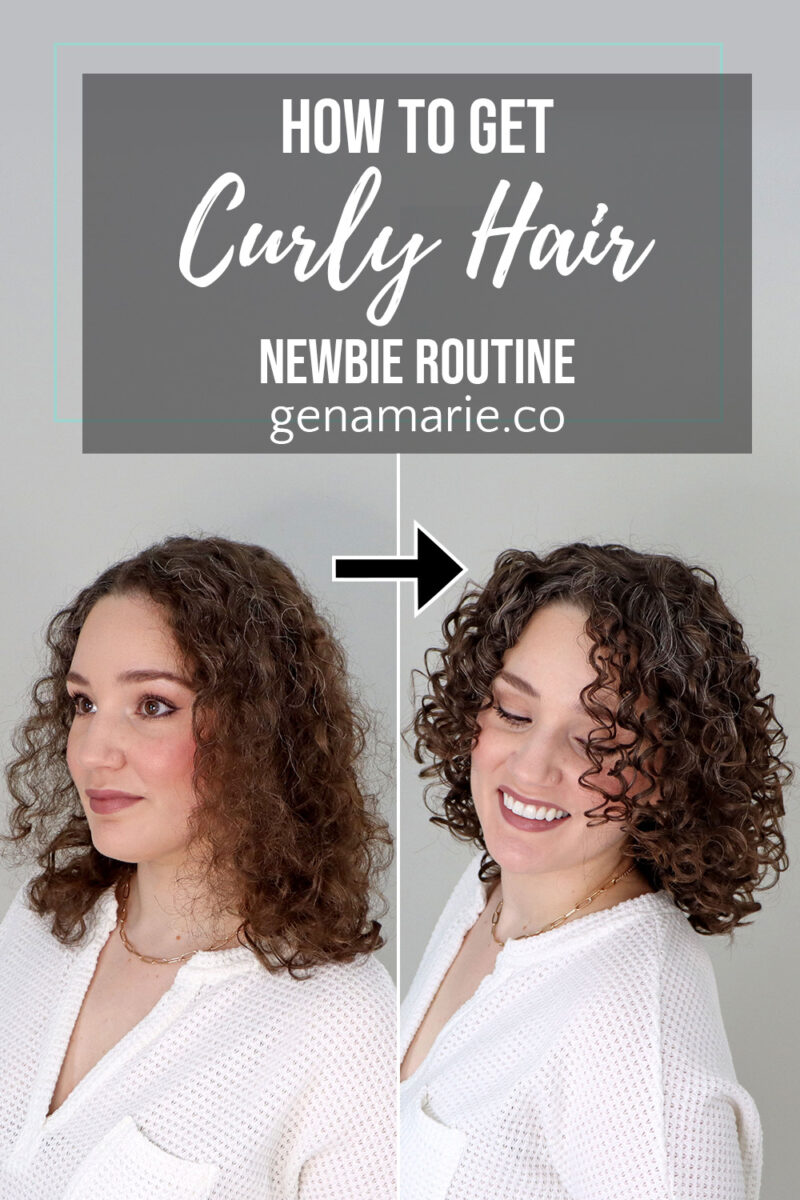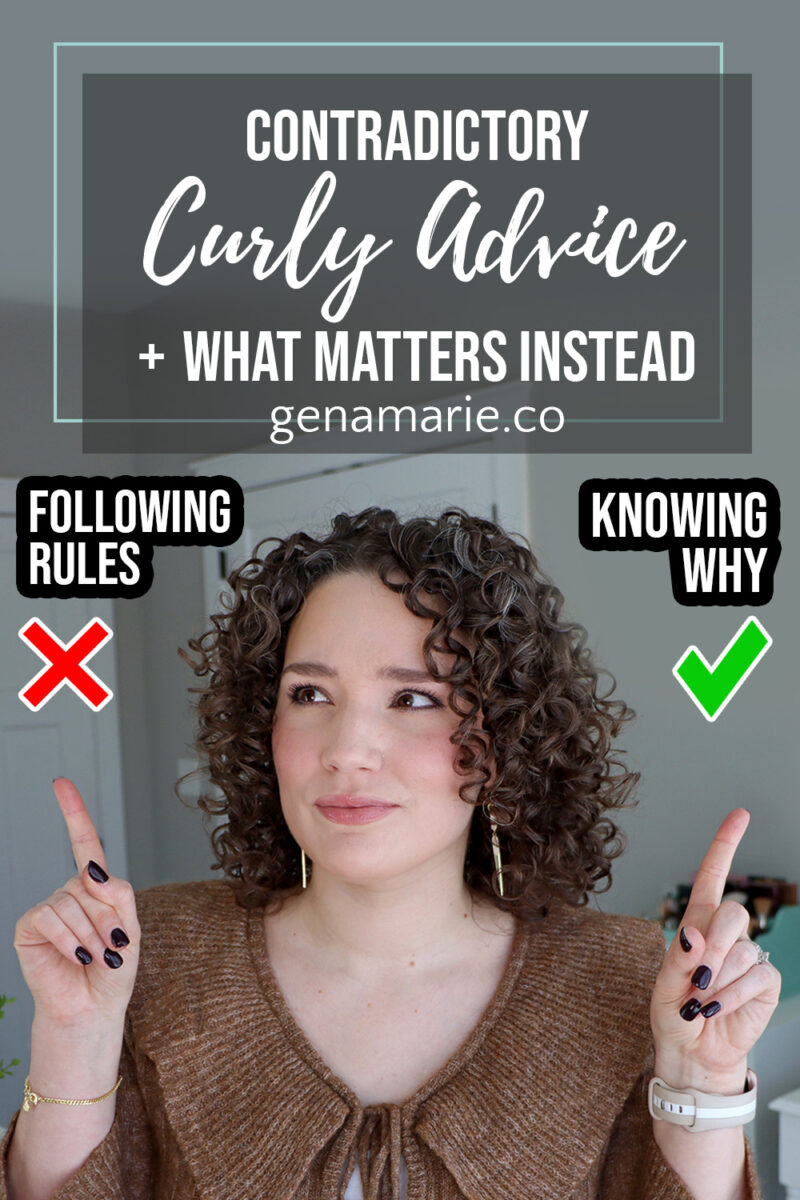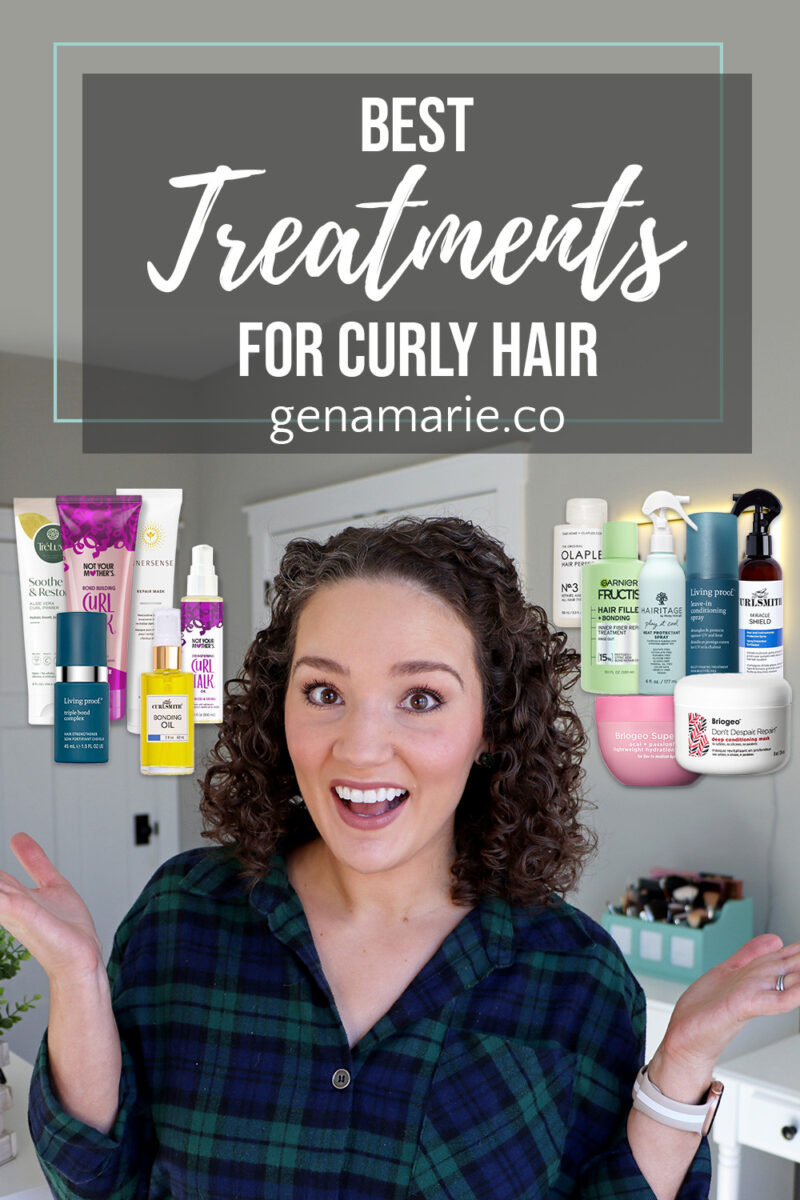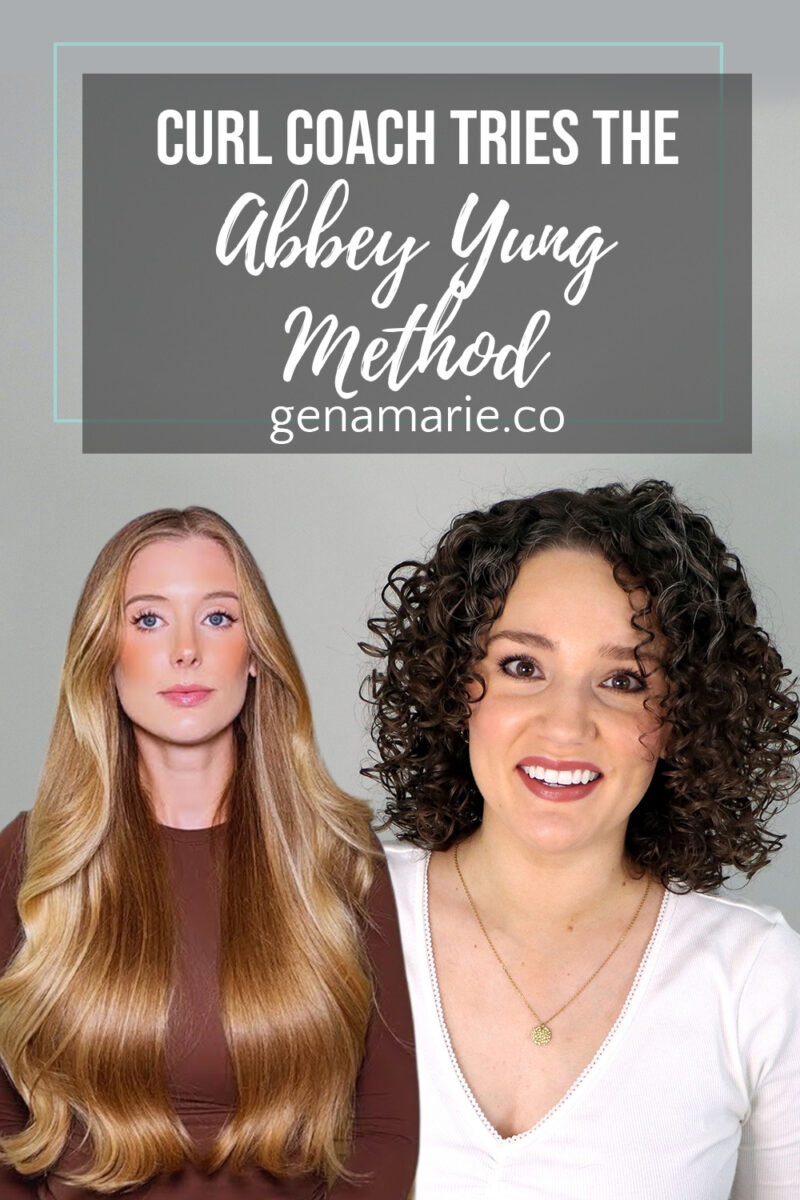
How to Get Curly Hair: Your First Wash Day Experiment
If you think you might have curly hair but don’t know where to start — or you tried before and your curls were frizzy and

With so many types of shampoo out there, how do you know which shampoo is right for your unique curls? I’m going to tell you the characteristics that you need to understand about your curls in order to select the right shampoo.
In my opinion, shampoo will not vary that much depending on your curl type. Your curl pattern doesn’t matter, and our density doesn’t come into play here either.
Shampoos will vary in formulation based on:
Shampoos/cleansers come in a variety of formulas:
Here’s what you need to determine when selecting the right formulation.
Texture and porosity come into play here because certain hair textures are more likely to experience buildup than others.

The finer your hair is, the more likely it could get weighed done with buildup, therefore needing a stronger shampoo.

The lower your porosity, the more likely it could get weighed done with buildup, therefore needing a stronger shampoo.
The more products that you use that contain ingredients that adhere to the hair, the more likely you are to get buildup over time. Also, if you like to add more product when you refresh, you may experience buildup.
Types of ingredients that can buildup:
These ingredients are ideal for stylers because they can prevent frizz, provide hold and definition, and fight humidity. High-porosity hair can benefit from these ingredients.
For those who do struggle with buildup but don’t want a shampoo that is too harsh or drying, opt for balanced shampoo that has a good lather for better spreadability.
The more oil that your scalp naturally produces, the more likely you will need to wash your hair.
Shampoos with Apple Cider Vinegar are a great way to balance oiliness and dryness, such as the AG one below. It’s mild yet effective at removing scalp oil and product residue.
Do you need to wash more frequently due to intense workouts, swimming, or your job?
For those that need to shampoo very regularly, such as every other day, opt for a co-wash or low-poo to avoid stripping the hair. Ensure you’re rotating in clarifying shampoos on a regular basis to avoid buildup from cowashes.
Hard water can be very damaging to the hair because minerals such as calcium and magnesium adhere to the hair and cannot be removed with a regular shampoo. The hair can become brittle, dull, dry, and even discolored for blondes.
A showerhead filter will not “filter out” hard water. Hard water must be treated with special salt from a water-softening system to make it softer.
The best solution is to install a water softener system in your home to treat it at the source or install a water softener showerhead cartridge.
Hard water: avoid co-washes and mild shampoos. Get a chelating shampoo and a regular shampoo.
Soft water: use a regular shampoo
Chelating shampoos are strong so don’t overdo it. It will help, but if you’re still washing your hair with hard water after that, you’re fighting an uphill battle.
The more damaged and high porosity your hair is, you can incorporate shampoos that contain protein to help strengthen it and prevent breakage. Protein is not completely necessary to focus on in shampoos, in my opinion, because it’s a rinse-away product versus something like a conditioner that absorbs or a styling product that stays on your hair.
The lower your porosity, the more you’ll want to avoid or use protein with caution. Excess protein or if every product in your routine contains protein, it can cause protein overload or a stiff feeling.
Low-porosity hair: avoid or use protein with caution
Medium-porosity hair: use protein occasionally
High-porosity hair: incorporate protein
Shampoo with protein or bond-repair ingredients is a great option for high-porosity hair. The example below from Ouidad are also formulated to be a low pH which is excellent for smoothing the cuticle of damaged hair.
Protein-free shampoos are great for anyone, especially if you have low-porosity and/or coarse hair because protein can make it feel brittle. The Not Your Mother’s example below is strengthening and bond-repairing without containing proteins, making it a great option for these protein-sensitive hair types. Protein-free examples include:
Having at least 2 types of shampoo is ideal so you can rotate to treat different hair needs that can fluctuate. The basics include:
Visit the shop page of my blog and use the filters to find what you’re looking for. Examples of filters that will help you find shampoos:
If you need more help finding the right products for you, watch this video to learn how to determine your hair’s characteristics.


If you think you might have curly hair but don’t know where to start — or you tried before and your curls were frizzy and

Curly hair advice is full of contradictions — and no one explains how they’re supposed to work together. If you’ve ever tried to research curly

If your curls are falling limp, feel dry, or are showing signs of damage, it might be worth adding some targeted treatments into your routine.

Does the viral Abbey Yung Method, primarily a straight hair routine, actually work for naturally curly hair? Abbey Yung is a beauty creator with a
One Response
I am confused. According to their website, the Not Your Mothers Curl Talk Bond Building shampoo has protein, however your latest video says it does not. Which is correct?